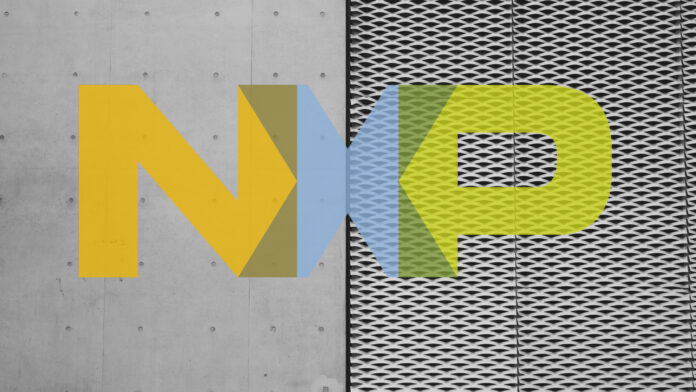NXP has acquired Port GmbH to integrate industrial protocol software into its processors – as the Dutch firm seeks to assert control over the most critical point in the industrial IoT value chain: the edge.
In sum – what to know:
Strategic edge play – chip firm to embed battle-tested industrial protocols into its silicon.
Protocol flexibility – multi-protocol stack meets the mess of factory-floor heterogeneity.
Full-stack ambition – signals shift to deep Industry 4.0 hardware-software integration.
NXP Semiconductors has acquired Germany-based Port GmbH (stylised, port GmbH), a specialist in industrial communications software, in a move that highlights the strategic value of the industrial edge. The deal positions the Dutch chipmaker to integrate its hardware with battle-tested protocol stacks, and to assert control over the most critical point in the industrial IoT value chain: the edge, where data is born, processed, and acted upon.
Port GmbH, founded in 1990, is based in Halle (Saale) in the state of Saxony-Anhalt in central Germany. It is best known for its portfolio of fieldbus and industrial Ethernet protocol stacks, including PROFINET, Ethernet/IP, EtherCAT, Modbus, POWERLINK, CANopen and others. It also supports emerging standards like time-sensitive networking (TSN) and the OPC-UA architecture.
Its middleware platform, GOAL (Generic Open Abstraction Layer), supports multi-protocol comms across diverse hardware platforms – a key capability in Industry 4.0, where legacy protocols remain firmly entrenched. The German firm claims around 500 customers around the world; its technology “powers… thousands” of devices, it said.
The acquisition gives NXP a valuable software complement to its industrial processor line-up, including its i.MX RT1180 crossover microcontroller units (MCUs) and i.MX 94 applications processors. These chips already feature real-time networking extensions, secure enclaves, and isolated connectivity subsystems. By taking Port GmbH in-house, it will be able to offer natively integrated, secure, and protocol-flexible platforms for industrial automation.
Writing on social media, Anand Taparia, principal analyst at IoT Analytics, provided a good view. “There is a clear logic in semiconductor players not ceding ‘data acquisition’ at the edge to downstream offerings,” he explained. “The edge is shaping up as the central battleground for industrial IoT, and chip vendors are uniquely positioned to control this critical ‘first mile’ of connectivity… NXP now gains the ability to offer its hardware plus a powerful suite of field protocol stacks and connectivity drivers natively – a step in the right direction for edge dominance.”
Taparia went on: “The presence of legacy protocols on plant floors isn’t going away. For all the talk of interoperability and standardization, heterogeneity is here to stay – industrial OEMs have a vested interest in maintaining protocol turf. As we observe struggles from standalone connectivity stalwarts like Kepware and Matrikon, the writing is on the wall: the future is not standalone connectivity software, but deep integration – whether at the edge level or directly into the silicon.”
The point, here, is that industrial shop-floor comms are a mess of ‘first-mile’ protocols, just to get data out of machines and processes, which are variously controlled by legacy equipment vendors. Companies like Kepware (PTC) and Matrikon (Honeywell), offering protocol translation middleware between the devices and the cloud, are struggling as the market shifts towards tighter hardware-software integration, either integrated into the edge layer or into the silicon itself.
Taparia suggests US-based Litmus Automation is a good example of an edge-based Industry 4.0 comms platform provider, and that NXP’s purchase of Port GmbH is a strategic power move to establish it as a full-stack solution provider at the original hardware level – a formidable proposition in critical real-time edge IoT environments. As he suggests, in the context of Industry 4.0, this edge layer is increasingly considered as the core battleground for value creation.
In its announcement, NXP noted that the acquisition aligns with major industrial trends: software-defined manufacturing, where flexible systems replace fixed-function hardware; cybersecurity by design, embedding protections throughout the industrial stack; edge intelligence where real-time data is processed closer to the source; and protocol agility, needed to manage complex, heterogeneous environments.
It stated: “While the industry is converging toward open, vendor-agnostic standards, the need for multi-protocol support remains essential to ensure compatibility across diverse industrial environments… This acquisition enables NXP to offer more integrated solutions that reduce development time and simplify deployment for industrial customers. Networking technologies are at the heart of this industrial evolution.
“They provide the data pipelines that fuel AI-driven insights and enable precise control of increasingly complex and autonomous equipment. Traditionally, these capabilities were delivered through dedicated networking modules. But today, infrastructure owners are seeking more integrated, cost-effective solutions – embedding connectivity directly into controllers, sensors, actuators and the processors that power industrial automation.”
Jeff Steinheider, vice president and general manager for industrial and network edge processing at NXP, commented: “[Port’s] proven software stacks and deep domain expertise are a perfect complement to our industrial edge portfolio. Together, we will empower our customers to build faster, more intelligent, more secure and more adaptable industrial systems.”
Christian Bornschein, chief marketing officer at Port, said: “We’ve spent decades building protocol stacks that power real-time industrial communication, and we’ve always believed that software must evolve with the systems it supports. Now, as part of NXP, we’re in a stronger position to help customers simplify integration, scale across platforms, and meet the demands of modern industrial design – without compromising on performance or interoperability.”
NXP is on an M&A roll. In February, it announced a deal to buy US edge AI chipmaker Kinara for $307 million. Kinara specialises in energy-efficient neural processing units (NPUs), which it said will be combined into its own industrial and IoT processors. In June, it announced the completion of a deal for TTTech Auto, a leader in innovating unique safety-critical systems and middleware for software-defined vehicles.

